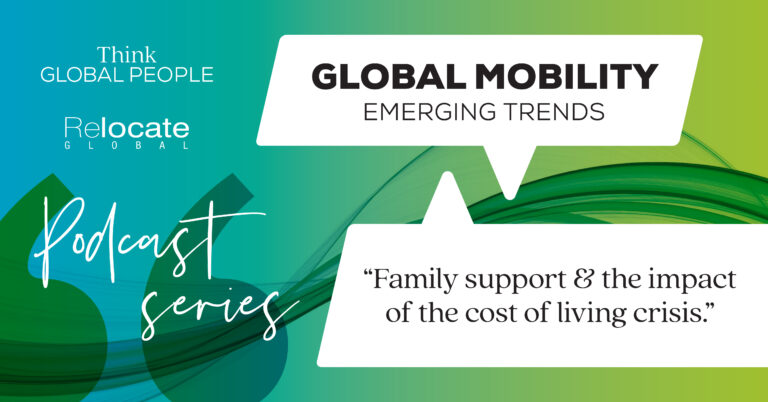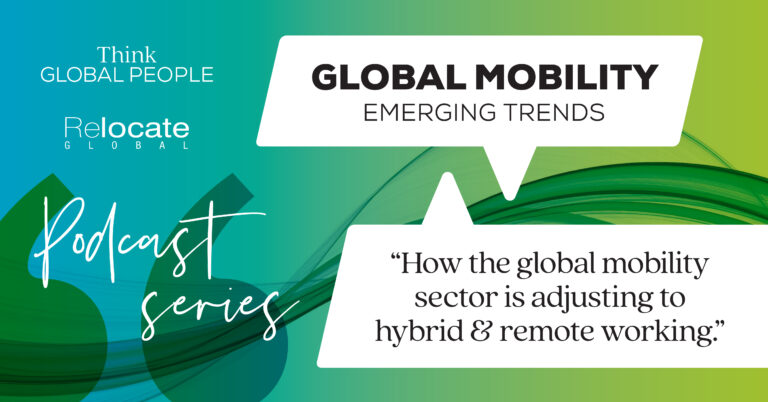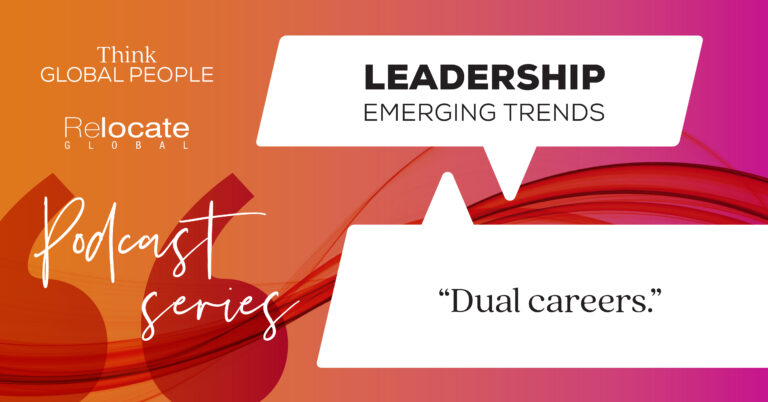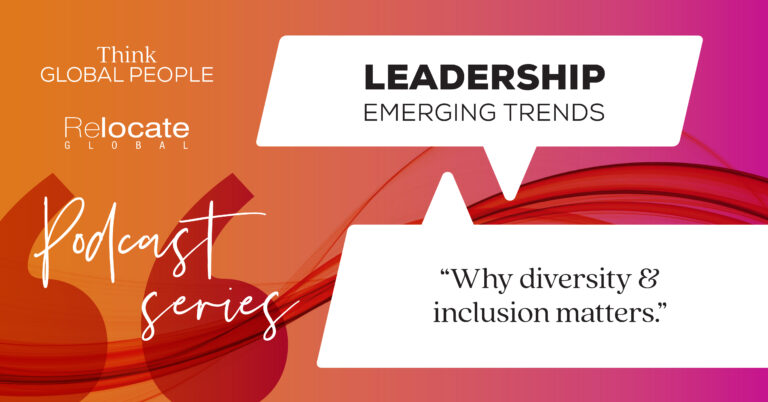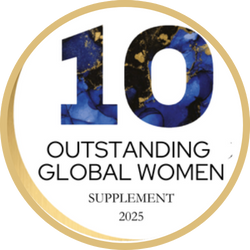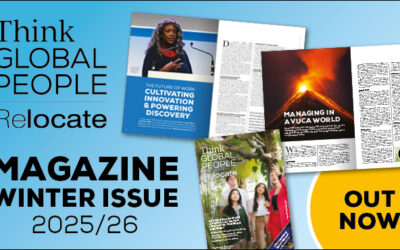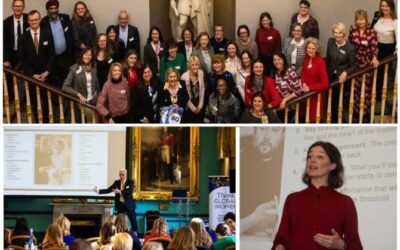think global women
Resources 2025
Think Global Women Taking Action for Equity 2025
Experience the 2025 Think Global Women: Taking Action for Equity event held in London for yourself. Watch the videos as an individual or share with your organisation and stakeholders. Facilitate your own discussions and then share your feedback with us. Your views and allyship will help drive meaningful actions to promote equity and inclusive workplaces around the world.
Below is a summary of the feedback from our key sessions and roundtable discussions on 7 March. We can’t wait to hear what ideas and action points you suggest for best practice guidelines. Email editorial@thinkglobalpeople.com
Serendipity Interviews
PANEL Speakers
FEEDBACK
Roundtable
Start implementing actions today in your organisation
We’ve collated the ideas, suggestions and experiences of the many delegates, including global experts who attended the event into a series of action points that employers and organisations can use to help increase diversity and inclusion and open up greater opportunities for all.
DEI Strategies
Difficult Workplace Conversations
Adaptability & Opportunity
Equity, Inclusion & Horizontal Segregation
Working in Difficult Locations
Navigating Challenging Workplaces
Education
Wellbeing, Family & Work-Life Balance
DEI STRATEGIES – TIME FOR SOMETHING NEW?
While workplace diversity has improved, inclusion remains a challenge due to persistent gender stereotypes and resistance to change. Traditional diversity and inclusion efforts have often focused on policies and procedures rather than cultural transformation. Many men feel constrained by outdated societal expectations, while women continue to face bias. Additionally, there is growing resistance to gender equality initiatives, with some believing progress has gone too far.
Organisations can support inclusion strategies by
- Shifting from policy-driven diversity initiatives to fostering inclusive behaviours, values and company culture.
- Addressing everyday biases by raising awareness of the “lived experience gap” and its impact on women.
- Encouraging men to break free from restrictive gender stereotypes and engage in inclusion efforts.
- Creating workplace environments that actively challenge unconscious bias and promote equal participation.
- Implementing structural changes, such as inclusive meeting practices, to ensure all voices are heard.
- Appointing “conscious inclusion champions” to identify and address exclusionary behaviours in the workplace.
Conclusion
True inclusion requires a shift from fixing individuals to transforming workplace culture. By fostering awareness, breaking stereotypes, and implementing inclusive practices, organisations can move beyond diversity and create truly equitable workplaces for all.
Email us with your feedback and suggestions for best practice guidelines Editorial@thinkglobalpeople.com
ADDRESSING DIFFICULT WORKPLACE CONVERSATIONS
Difficult workplace conversations are a significant challenge for many organisations. Leaders and managers often lack the training and confidence to tackle sensitive or emotive discussions, leading to unresolved issues and stagnant communication patterns. Research indicates that 82% of managers are “accidental managers,” with little formal training in handling difficult conversations, and two-thirds of meetings are deemed unproductive. Common barriers to open dialogue include a lack of time, fear of negative consequences, and systemic challenges within organizational cultures. Without the ability to navigate these discussions effectively, teams and leaders risk missed opportunities for growth, collaboration, and problem-solving.
Organisations can take the following actions
- Provide training and development – Equip leaders and managers with formal training on handling difficult conversations, integrating both rational and emotional approaches.
- Encourage a culture of open communication – Foster an environment where employees feel safe to voice concerns and provide constructive feedback without fear of repercussions.
- Recognise and address emotional barriers – Help employees identify and manage the emotional aspects of difficult conversations to build confidence and resilience.
- Allocate time for important conversations – Prioritize meaningful discussions in the workplace by ensuring structured time for dialogue rather than reactive responses.
- Leverage diversity and social sensitivity – Recognize the value of diverse perspectives and social sensitivity in improving team dynamics and fostering productive conversations.
- Encourage proactive conversation planning – Support employees in preparing for challenging discussions by defining objectives, understanding possible obstacles, and considering positive outcomes.
- Empower leaders to set the example – Senior leaders should model effective communication practices, demonstrating the benefits of addressing challenges head-on.
In conclusion: By implementing these strategies, organizations can transform difficult workplace conversations into opportunities for growth and innovation. Leaders who integrate emotional intelligence with strategic communication will see improved engagement, stronger teams, and a more open and effective workplace culture.
Email us with your feedback and suggestions for best practice guidelines Editorial@thinkglobalpeople.com
EMBRACING ADAPTABILITY AND OPPORTUNITY
Building a successful international career comes with unique challenges. Professionals must adapt to different cultures, navigate unfamiliar work environments, and develop leadership skills that transcend borders. The ability to remain flexible, embrace serendipitous opportunities, and lead with authenticity are key as those who thrive in international roles often do so by remaining open to change, learning from diverse experiences, and fostering strong cross-cultural relationships.
To make the most of an international career, consider embracing the following strategies:
- Stay open to new experiences: Being adaptable and willing to explore new roles and industries can lead to unexpected career growth.
- Develop cross-cultural competence: Learning how different cultures operate and adjusting your approach accordingly can help you navigate global business successfully.
- Take risks with confidence: Bold career moves, even those that seem daunting, can yield incredible personal and professional rewards.
- Leverage transferable skills: Leadership, problem-solving, and communication are valuable assets that can apply across different fields and regions.
- Invest in lifelong learning: The most successful leaders are those who continuously seek to grow and refine their skills.
- Build strong networks and partnerships: Connecting with professionals across industries and cultures can open doors to new opportunities.
- Embrace authenticity in leadership: Being true to yourself and leading with empathy fosters trust and inspires teams worldwide.
- Challenge assumptions about career paths: Many global professionals succeed by stepping outside of traditional career trajectories and pursuing unexpected opportunities.
In conclusion A successful international career is not just about strategic planning but also about embracing the unexpected. By remaining curious, adaptable, and open to learning, professionals can thrive in global environments, build meaningful leadership experiences, and create lasting impact across industries and cultures.
Email us with your feedback and suggestions for best practice guidelines Editorial@thinkglobalpeople.com
EQUITY, INCLUSION AND HORIZONTAL SEGREGATION
Women face three key EDI issues: equity, inclusion, and segregation in employment. Whilst She explained the shift from equality to equity, emphasizing that while equal opportunity laws exist, systemic barriers still prevent women from achieving equal career success. Women have fewer networks, mentors, and leadership opportunities, necessitating proactive measures to level the playing field.
Actions organisations can take to address these challenges
- Implement positive action policies, such as guaranteeing women interviews for leadership roles.
- Provide leadership training to boost women’s confidence and equip them for senior positions.
- Foster inclusive workplace policies that recognize and mitigate structural disadvantages.
- Move beyond diversity statistics to ensure real inclusion where minority voices are valued.
- Address horizontal segregation by encouraging women into higher-paid, non-traditional roles.
- Tackle vertical segregation by offering women global mobility opportunities to gain leadership experience.
In conclusion: Inclusion goes beyond numbers; it requires genuine efforts to ensure women have access to and succeed in leadership roles. Organisations must actively break down barriers to create equitable and inclusive workplaces.
Email us with your feedback and suggestions for best practice guidelines Editorial@thinkglobalpeople.com
WORKING IN PERCEIVED DIFFICULT GEOGRAPHICAL LOCATIONS
Operating in challenging geographic or cultural locations requires thorough preparation to address cultural differences, political instability, and safety concerns. Assignees often face difficulties adapting, requiring additional support to ensure a successful transition.
Organisations can help employees by:
- Conducting thorough due diligence, including personal risk assessments and trial visits, to help employees prepare for their assignments and integrate into their new environments as easily as possible.
- Establishing mentorship and local support networks to assist employees in navigating cultural and workplace challenges.
- Investing in training and resources to ensure employees understand the socio-political context of the location they are working in.
- Advocating for better support structures, such as work permits for partners, to facilitate global mobility and career continuity.
In conclusion: Careful preparation, ongoing support, and a well-established network can help professionals succeed in perceived difficult locations while ensuring their safety and well-being.
Email us with your feedback and suggestions for best practice guidelines Editorial@thinkglobalpeople.com
NAVIGATING CHALLENGING WORKPLACES
Challenging workplaces can stem from exclusion, lack of support, or difficulties in having open and constructive conversations. Creating an inclusive culture where individuals feel heard and valued is crucial for long-term success.
Organisations can help reduce challenges by
- Foster a culture of psychological safety where employees feel comfortable speaking up about challenges and concerns.
- Train leaders and teams in effective communication skills to navigate difficult conversations productively.
- Establish inclusion networks that welcome all employees and provide a platform for shared experiences and support.
- Promote small, incremental changes that drive long-term transformation in workplace culture.
In conclusion: By equipping employees with the skills and confidence to engage in open discussions, organisations can create a more inclusive and supportive workplace.
Email us with your feedback and suggestions for best practice guidelines Editorial@thinkglobalpeople.com
EDUCATION - EARLY YEARS TO LIFELONG LEARNING
Education plays a fundamental role in shaping career opportunities and personal development. Encouraging lifelong learning and intergenerational mentorship can drive career growth and foster inclusivity.
Organisations can foster a culture of learning by:
- Implementing intergenerational learning initiatives where experienced professionals mentor younger employees.
- Encouraging inclusive education practices that allow all voices to be heard in discussions and decision-making processes.
- Challenging societal and workplace stereotypes that limit career aspirations, particularly for women and underrepresented groups.
- Creating learning opportunities that extend beyond early education, promoting continuous development in the workplace.
In conclusion: Supporting education at all stages; early years, career development, and beyond, ensures a workforce that is adaptable, skilled, and prepared for the evolving global landscape.
Email us with your feedback and suggestions for best practice guidelines Editorial@thinkglobalpeople.com
WELLBEING, FAMILY, AND WORK-LIFE BALANCE
Balancing professional and personal commitments is an ongoing challenge, particularly in remote and flexible work environments. Setting boundaries and managing expectations is key to maintaining well-being.
Organisations can support employee well-being by:
- Promoting a culture where employees are encouraged to set clear work-life boundaries to prevent burnout particularly in flexible work arrangements.
- Encouraging regular self-check-ins and discussions around realistic workloads.
- Implementing visibility strategies for remote workers to ensure their contributions are recognised and valued.
- Providing mental health resources and coaching to help employees navigate work-related stress and personal expectations.
- Encouraging open discussions about societal pressures and perceived obligations, helping employees manage them effectively.
In conclusion: Creating a workplace that supports well-being, clear boundaries, and a culture of realistic expectations fosters a healthier, more productive workforce.
Email us with your feedback and suggestions for best practice guidelines Editorial@thinkglobalpeople.com
Take action for equity
We want to hear from you, your organisation and stakeholders to keep up the momentum. Contact us with content and photos inspired by the Think Global Women 2025 ‘Take Action for Equity’ event and videos and email editorial@thinkglobalpeople.com
Register for forthcoming online and live Think Global Women activities events@thinkglobalpeople.com
Articles Relating to Think Global Women 2025
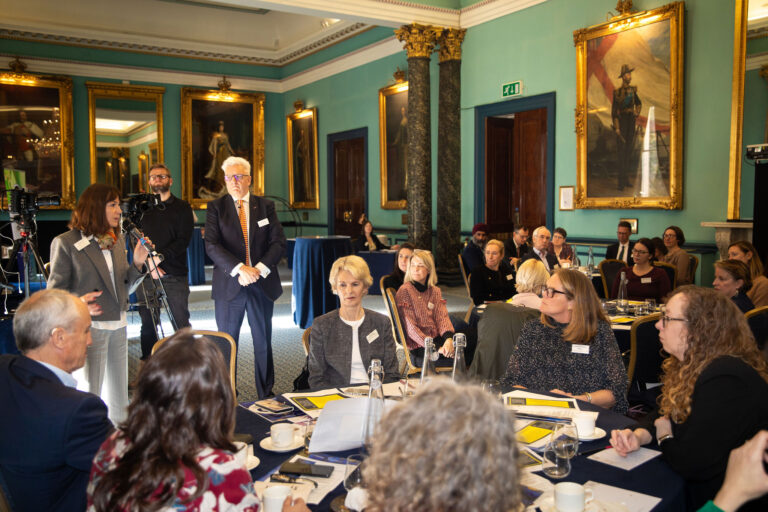
Constructive conversations, personal authenticity and the importance of inclusion in the workplace
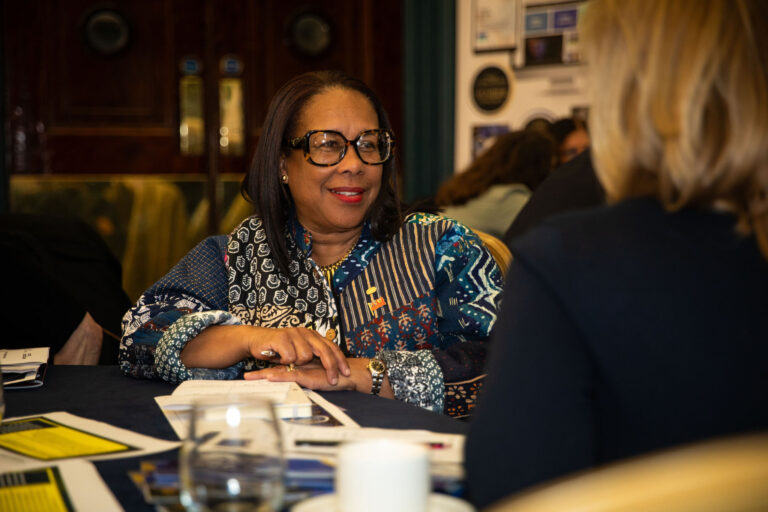
Encouraging the best in everyone in the workplace and supporting women and girls in fulfilling their potential
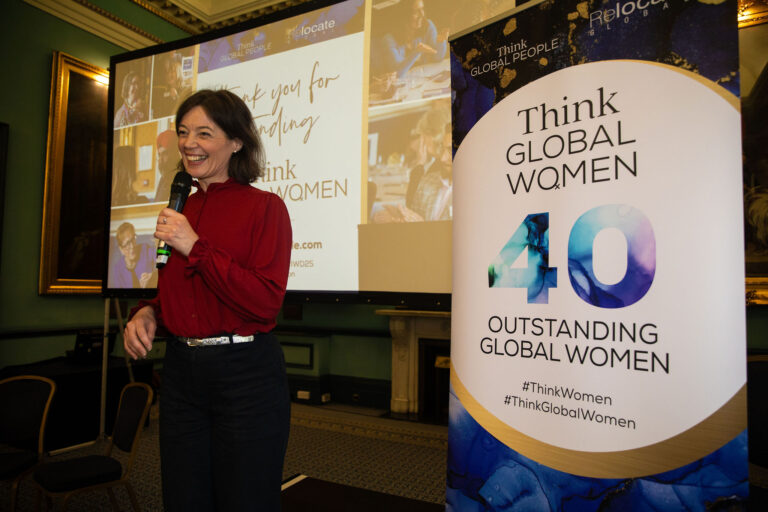
Resolving the most difficult workplace conversations
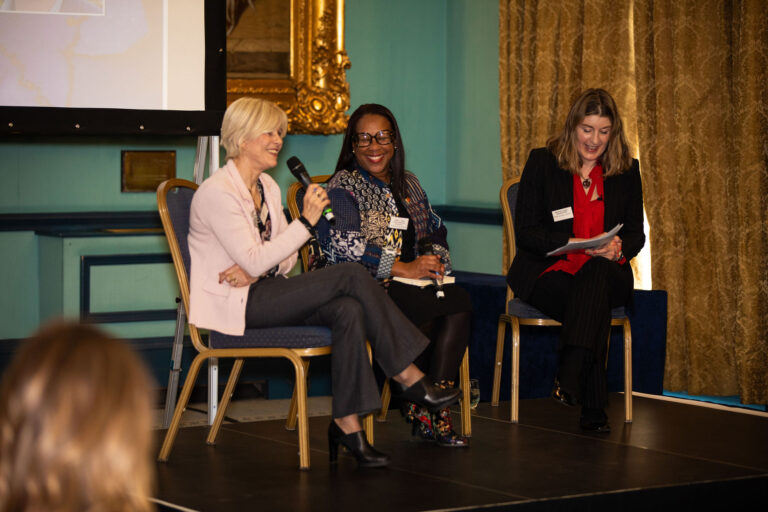
Serendipity in careers and lifelong learning
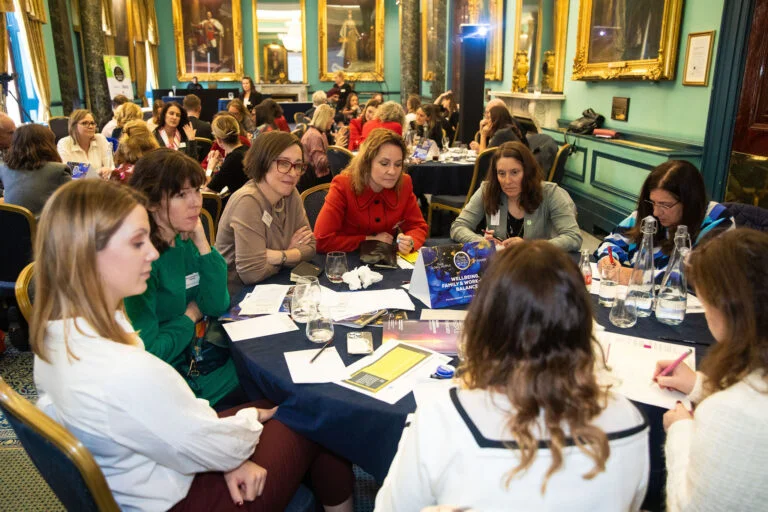
Think Global women: key issues affecting women’s employment

Celebrating the female superpower
Other Resources
Factsheets
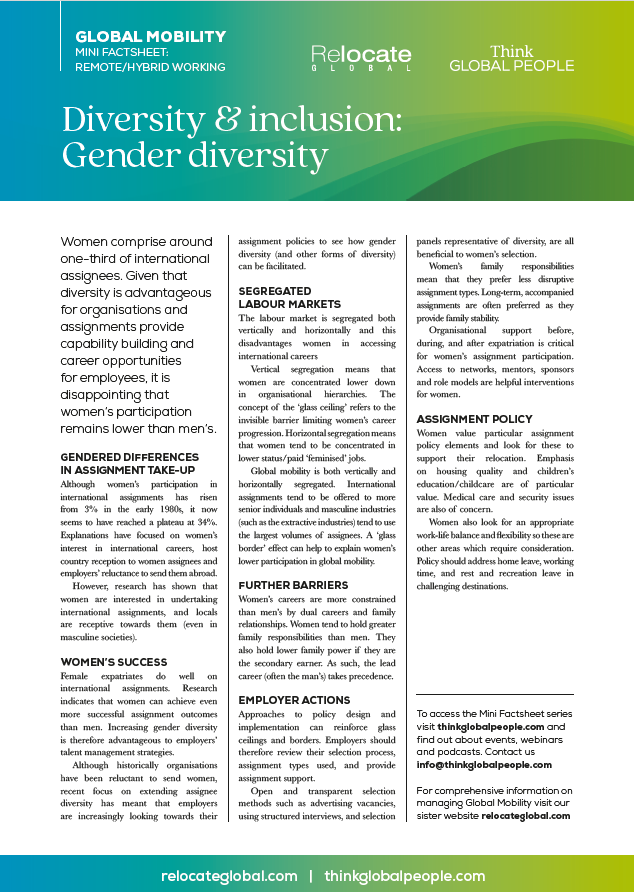

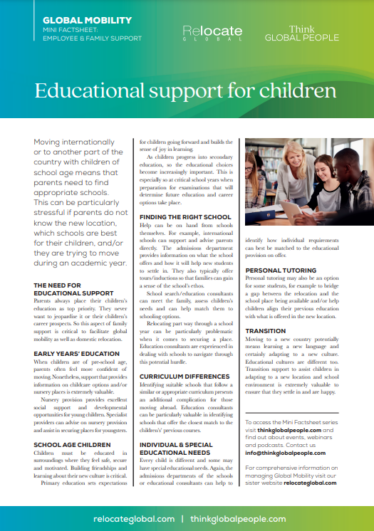
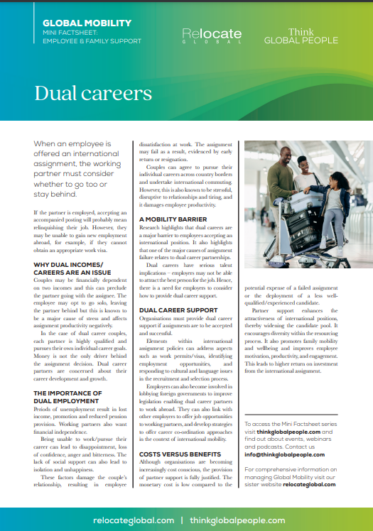
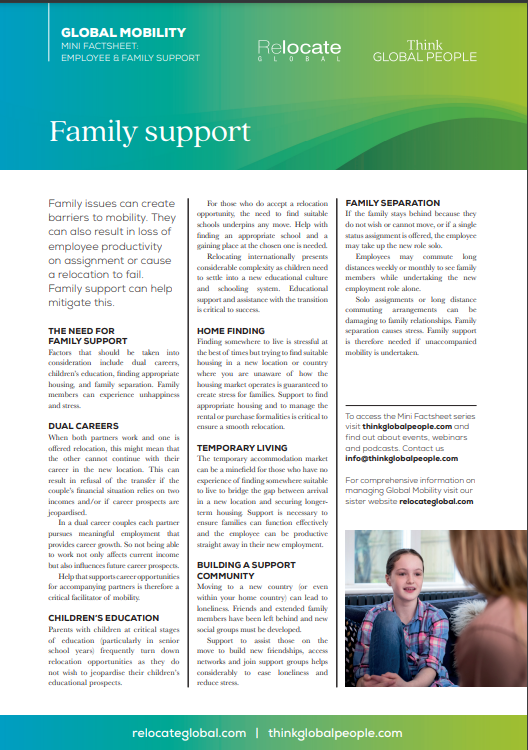

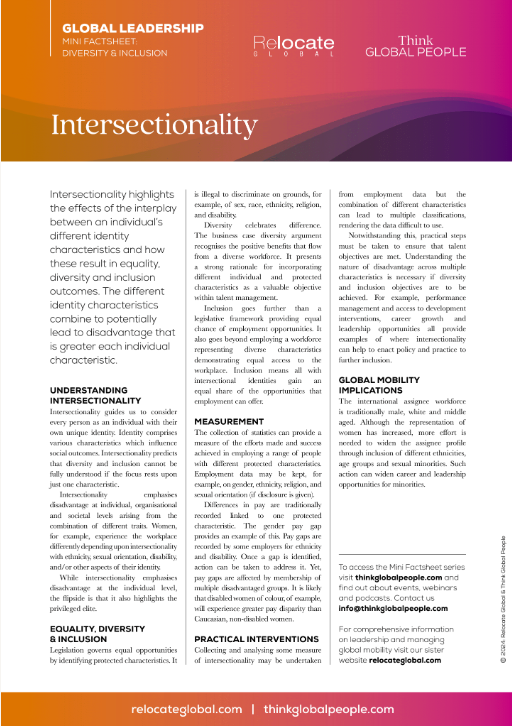
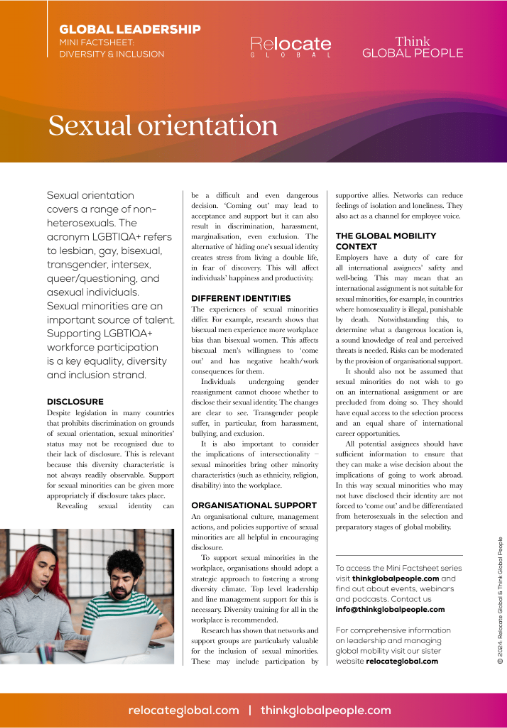
Podcasts
